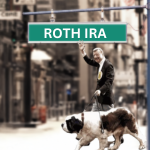Author: Maria T. Hurd, CPA
New Voluntary Fiduciary Correction Program
May 22, 2025
In Summary The New Program: There is a new Self-Correction Component (SCC) of the Voluntary Fiduciary Correction Program (VFCP), which allows plan sponsors to officially use the DOL’s online calculator for self-correction. This new option is only available for specific errors, such as delinquent contributions deposited within 180 days where the associated lost earnings are … Continued
New VFCP on Late Deposits
April 30, 2025
In Summary Unclear Deadlines for 401(k) Deferrals: The Department of Labor (DOL) regulations for 401(k) deferral deposits are unclear, using “earliest” and “reasonably” rather than a firm deadline. While small plans (under 100 accounts) have a 7-day safe harbor, large plans do not. As a result, many large plans adopt a 3-day industry standard, which … Continued
Large Welfare Plans That Use a Trust Have a Financial Statement Audit Requirement
March 28, 2025
In Summary Funded Plans, the Audit Requirement: The single most important factor determining if a large welfare plan needs a CPA audit is its funding status. If a plan uses a separate trust account (such as a 501(c)(9) VEBA) to hold assets or pay benefits—making it “funded”—it must undergo an audit of the entire plan … Continued
55 Things You Should Know About 401(k)/403(b)/457(b) Designated Roth Accounts
March 10, 2025
In Summary Designated Roth Accounts Contribution Rules: Participants in 401(k), 403(b), or 457(b) plans can make after-tax contributions to a designated Roth account. These contributions are combined with any pre-tax deferrals to count toward the annual limit ($23,500 in 2025). Unlike Roth IRAs, there are no income caps preventing high earners from contributing to their … Continued
First Steps Toward Rothification
February 26, 2025
In Summary Counting All Roth Dollars: All Roth contributions a High Earner makes count toward the mandate, regardless of when they are made. This means a participant who contributes a portion of their regular 402(g) limit on a Roth basis might already satisfy the catch-up requirement before their total contributions exceed the 402(g) limit. Plan … Continued
Delaware’s Senator Roth and His Roth Account Legacy
February 18, 2025
In Summary Roth’s Vision: Senator Roth’s legacy continues through tax-free retirement innovation, as his creation of the Roth IRA in 1997 transformed retirement savings and inspired later Roth-style accounts like Roth 401(k), 403(b), and 457(b). Mandatory Roths Era: Rothification marks a shift toward mandatory after-tax contributions, beginning in 2026 when High Earners must make catch-up … Continued
The New Super Catch-up for 401(k) and 403(b) Plans
February 04, 2025
In Summary Introducing the Super Catch-Up: Effective January 1, 2025, plan sponsors can optionally allow participants aged 60 to 63 to contribute a “super catch-up,” which is 150% of the regular catch-up limit. For 2025, this allows an additional $11,250, bringing the total maximum deferral for this age group to $34,750. Correct Classification: A contribution … Continued
A Deficient Form 5500 Filing is Preferable to a Delinquent Filing
January 21, 2025
In Summary Deficient Filings vs. Delinquent Filings: During the AICPA conference, the DOL’s Marcus Aron clarified that the department strongly prefers a “deficient” filing (filed on time but incomplete, such as missing an audit) over a “delinquent” filing (not filed at all). A deficient filing can be amended later to include the audit report and … Continued
Required Minimum Distributions for 401(k) and 403(b) Plans
January 07, 2025
In Summary Understanding the First RMD and Subsequent Deadlines: Your first Required Minimum Distribution (RMD) is due by April 1 of the year after you turn 73 or, if your plan allows, the year you retire (whichever is later). However, 5% owners must begin by 73 regardless of employment. All subsequent RMDs are due by … Continued
Long-Term, Part-Time (LTPT) Guidance for 403(b) Plans
November 25, 2024
In Summary IRS Notice 2024-73 Clarifies New Part-Time Rules: There are new IRS guidance effective January 1, 2025, which reconciles existing 403(b) plan exclusions with the Long-Term Part-Time (LTPT) rules. Specifically, employees working less than 20 hours per week can be excluded until they meet the LTPT criteria (age 21 with two consecutive years of … Continued









